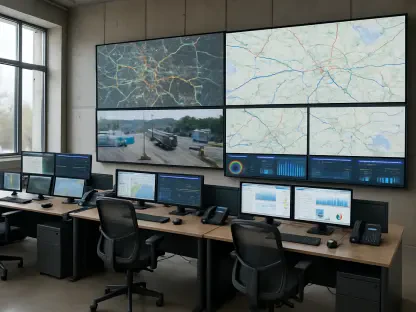In a recent public hearing that drew significant attention across the state, environmental advocates and community activists in Georgia voiced urgent concerns about the unchecked growth of data centers and their profound impact on local resources and neighborhoods. With the tech industry expanding at a rapid pace, these facilities have become a double-edged sword, offering economic benefits while straining electricity grids, depleting water supplies, and disrupting community life. The Georgia Department of Community Affairs (DCA) has stepped into the fray with a proposal to classify data centers as “technological facilities” under the “developments of regional impact” (DRI) category, a move that could reshape how local governments handle such projects. This initiative seeks to address the mounting tension between technological advancement and sustainable development, setting the stage for a critical debate on balancing innovation with environmental and social responsibility.
Addressing Environmental and Community Impacts
Resource Strain and Local Disruption
The escalating presence of data centers in Georgia has sparked alarm over their voracious appetite for electricity and water, resources already under pressure in many areas. Environmentalists argue that these facilities, often sprawling across hundreds of thousands of square feet, contribute significantly to resource depletion, threatening the state’s ecological balance. Beyond resource concerns, community activists highlight how the constant hum of cooling systems generates noise pollution, while the rezoning of land for industrial use often results in the permanent loss of valuable agricultural terrain. During the public hearing, voices like Wanda Mosley from South Fulton emphasized the urgent need for state-level safeguards to protect vulnerable communities from bearing the brunt of these impacts. The proposed DRI classification by the DCA aims to provide a framework for local governments to better assess and mitigate such disruptions, ensuring that development does not come at the expense of environmental integrity or quality of life for residents.
Calls for Tighter Oversight Standards
Amid growing unease, a key point of contention at the hearing was the size threshold for data centers subject to state review, with the DCA proposing 300,000 square feet in urban and suburban zones and 500,000 square feet in rural areas. Critics, including Amy Sharma of the Georgia Water Coalition, have pushed for a uniform limit of 250,000 square feet to cast a wider net of oversight, arguing that smaller facilities can still exert significant strain on local ecosystems. The discussion also touched on broader grievances, such as the minimal job creation associated with data centers, which often employ far fewer workers than traditional industrial projects. Some local governments have already taken action, with measures like the Atlanta City Council’s restrictions on data center locations and Coweta County’s moratorium on new developments following a massive proposed project. These steps reflect a growing consensus that without stricter regulations, the unchecked expansion of data centers risks long-term harm to both communities and the environment.
Balancing Economic Benefits with Sustainable Growth
Economic Contributions Under Scrutiny
While the environmental and social costs of data centers are undeniable, supporters of the industry point to their substantial economic contributions, particularly in rural areas with limited tax bases. These facilities often generate significant property tax revenue, providing a financial lifeline for underfunded schools and public services in regions struggling to attract other forms of investment. This fiscal boost is a compelling argument for local leaders who see data centers as a pathway to economic stability, even as they grapple with the trade-offs. However, critics counter that such benefits are often overstated, as the revenue may not fully offset the long-term costs of resource depletion and community displacement. The DCA’s proposed rules, which mandate disclosure of energy and water usage by developers, aim to bring transparency to this debate, allowing for a clearer understanding of whether the economic gains truly justify the environmental and social sacrifices being made.
Navigating Regulatory Challenges Ahead
As Georgia stands at a crossroads between technological expansion and sustainability, the push for regulatory oversight has gained undeniable momentum, though the path forward remains fraught with challenges. The DCA’s initiative to include data centers under DRI rules responds to calls from regional planning commissions for clearer guidance in managing these projects, yet opinions diverge on the specifics of implementation. Environmental advocates demand more stringent and uniform standards to curb negative impacts, while industry supporters stress the need to preserve economic opportunities, especially in underserved areas. The public input period, which concluded on a recent Friday, and the DCA board’s final vote held on November 20, marked critical steps in this ongoing dialogue. Looking back, these efforts reflected a determined push to adapt regulatory frameworks to the realities of rapid tech infrastructure growth. Moving forward, stakeholders must continue to refine these rules, ensuring they strike a fair balance that protects local ecosystems and communities while fostering responsible innovation.









